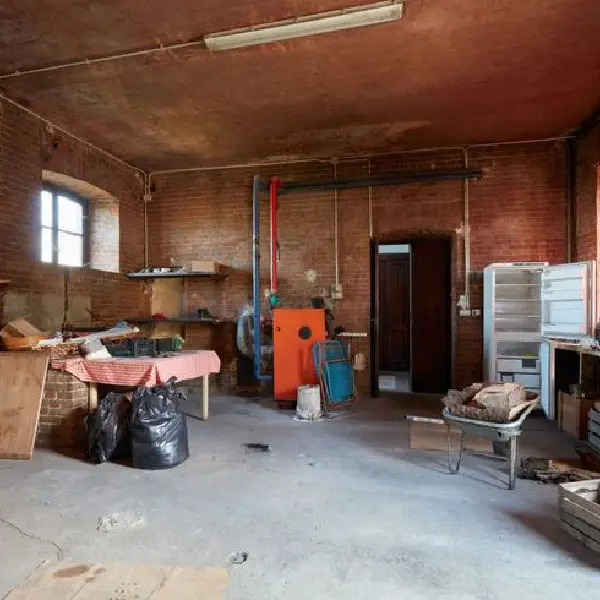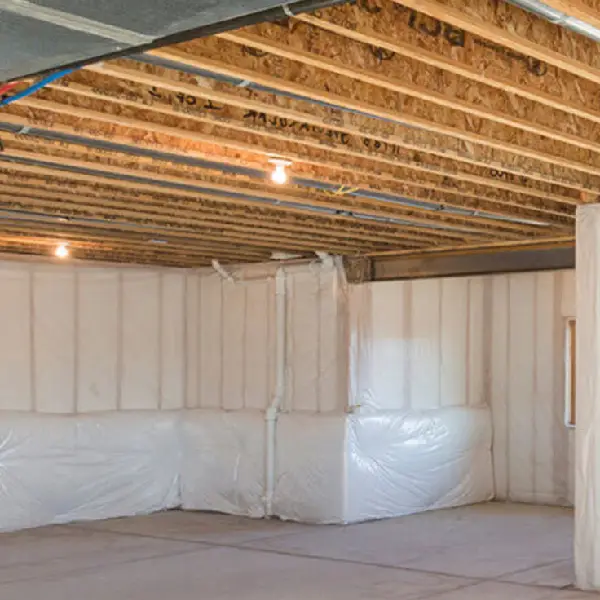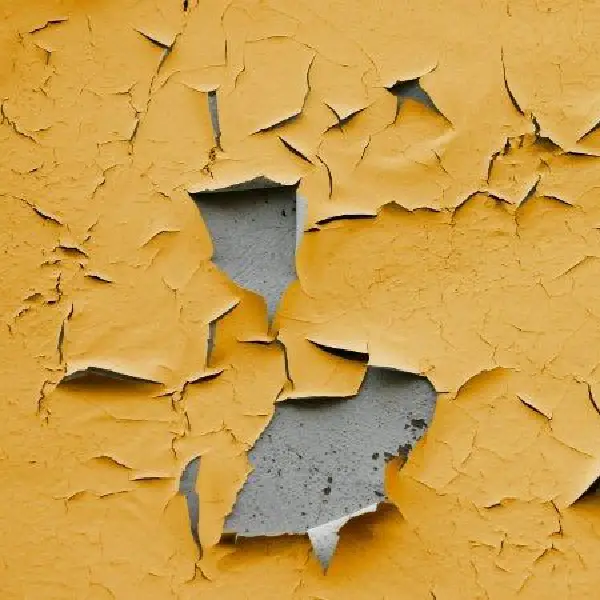Basement Inspection; Checklist and Signs You Need it

Whether you use your basement for recreation, business, or just to periodically reset the circuit box, a basement inspection is a useful approach to stay ahead of any problems that may be hiding below.
Basement inspection, which is similar to home inspection but concentrates on your lower level, might reveal structural breaches, mildew and dampness, vermin, and other unwanted issues.
Any issues can be identified and resolved by a skilled contractor. What to anticipate from a basement inspection is given here.
The Importance of the Basement Inspection Process
It's important to notice the basement while thinking about buying a house. Although the basement is frequently a necessary room in a home, it is not without difficulties and possible problems.

image sourced from here
This blog post will discuss the value of a basement examination and how it may prevent further problems down the road.
Evaluation of Structural Integrity
The structural soundness of the basement is assessed during an assessment of the house.
A certified home inspector will check the walls, floors, and foundation for any indications of structural flaws, moisture incursion, or cracks.
If you catch these problems early on, you can deal with them and stop more harm or possible dangers. For the property's general stability and safety, it is essential to comprehend the state of the basement.
Finding Wetness and Water Seepage
Moisture and water penetration are common in basements, which can cause mold development, damage to personal items, and poor indoor air quality.
Examining the waterproofing techniques, looking for evidence of water damage, and locating possible moisture sources like plumbing leaks or shoddy drainage systems are all part of a comprehensive basement examination.
By identifying these problems early on, you may take proactive measures to guarantee a dry and healthy basement environment.
Revealing Confidential Concerns
Basements frequently conceal issues that are not immediately apparent to the untrained eye. These include problems like old electrical systems, poor ventilation, or insufficient insulation.
These concealed issues are revealed by a thorough basement investigation, which also provides important details about the general state of the area.
By being aware of these possible obstacles, you can make an informed choice regarding the property and schedule any required improvements or repairs.
Avoiding Further Financial Stress
Even while a basement inspection can cost more upfront, it might end up saving you a lot of money over time.
Potential problems can be caught early on, allowing you to fix them quickly and avoid future, more involved, and expensive repairs.
For instance, if a little foundation fracture is ignored, it may become worse over time and result in larger structural issues that would cost much more to repair.
A comprehensive examination gives you the information you need to bargain with the seller for repairs or modify the buying price.
Fulfilling Lending and Insurance Requirements
Sometimes, before to granting coverage or authorizing a mortgage, lenders or insurance providers will demand a basement examination.
You safeguard your rights and satisfy any conditions imposed by lenders or insurance companies by carrying out an adequate inspection, which guarantees a more seamless closing procedure.
When is Foundation and basement Inspection needed?
When you observe indications of a foundation issue, including wall or floor cracks, uneven flooring, or difficult-to-open or close doors and windows, it is advised that you have a foundation assessment.
If you intend to repair your basement or if you see indicators of water damage, including mold or mildew, you should get your basement inspected.
Frequent foundation inspections may assist you in spotting issues early on and making necessary repairs, thus saving you money.
Basement Inspection Checklist
Below is a complete basement inspection checklist with each explained completely:
1. Walls and Foundational Cracks
Usually, cracks develop along the joints of your house. To prevent ignoring risks, contractors should examine every potential fracture area.
A professional can offer solutions for fixing cracks in your basement's waterproofing.
But, you might need to speak with a local expert in foundation repair if there is a significant fracture in your foundation.
Your contractor will specifically search for the following sorts of cracks in your basement:
- Horizontal cracks: Rain and groundwater-induced stress and strain on the foundation of your home are typically the source of horizontal cracks.
- Vertical cracks: Moisture seepage may result in vertical cracks if your home's constructor uses subpar materials to save costs.
- Diagonal cracks: Uneven settling brought on by groundwater and precipitation pressure can result in disasters.
- Stair-step cracks: If your home was constructed with mortar, these unusual cracks develop down the mortar lines as a result of pressure from groundwater and precipitation.
Here is how you can distinguish if the wall cracks are serious.
2. Damaged Flooring
A comprehensive evaluation of the basement floor is called a "damaged flooring inspection," which aims to find any problems or damage that could require repair. This may entail looking for wear and tear, water damage, or cracks.
3. Sump Pump
Your basement contractor will undoubtedly inspect the sump pump if your house has one.
Sump pumps prevent the seepage of groundwater into your basement, which may lead to mildew, moisture, and unpleasant odors in addition to structural problems.
Your inspector will go further and look for other leaks or indications of flooding if they see obstructions in the discharge line or inlet screen, or if they see that the motor on your sump pump is not functioning.
4. Pipes and Plumbing Systems
Plumbing lines will be examined by basement contractors to identify any leak sources.
Moisture and wetness are caused by exposed pipelines. Pipes will eventually corrode, deteriorate, and leak in unexpected locations.
Following are a few clear indicators of a basement leak:
- The temperature drops in the basement
- dim windows in the basement
- doors that stick
- Warming goods
- Mold
- Scents
5. Warming System
Never disregard a chill in the air in your basement. A possible leak source is revealed by a cold basement.

image sourced from here
A cold basement is an indication that water is leaking through the foundation. A leaky supply of water entering a basement will raise the moisture content, raising the ambient air temperature above average.
6. Damaged Door, Window, and Air Leaking
Similar to lower outside air temperature, foggy basement windows indicate high moisture content.
Condensation is not truly caused by windows. They can, however, offer the clearest visible cue that moisture has entered.
The interaction of warm, humid air with a cold surface causes condensation to accumulate on windows.
For this reason, on days when the outside temperature lowers, condensation frequently forms.
Usually, a sticky door is caused by dampness rather than a "door" issue. Sticking doors are a sign that moisture is causing the wooden frames around your doors to expand. The dampness of the basement air is the obvious cause of a sticky door.
7. Molds
In a perfect world, mold would be discovered before it could take over a house. Mold in a basement may indicate ongoing, past, or recurrent leaks.
In the event that mold is found, homeowners must devise a multifaceted approach to address the mold.
Finding the mold's origin is the first step in the process. The second step involves repairing any mold damage by thoroughly cleaning the affected areas, discarding any objects that cannot be saved, and adequately ventilating the room.
Finally, a strategy for severing the moisture source in the future to stop the formation of mold must be developed.
8. Electrical Issues
An inspection of a building's basement electrical system is necessary to look for any possible dangers or code infractions.
This might entail making ensuring the outlets, switches, cabling, and fixtures are in excellent operating order and according to code.
A basement may have a variety of electrical problems, such as obsolete wiring, overloaded circuits, incorrectly fitted outlets, and insufficient illumination.
In order to avoid electrical risks like fires or shocks, it is critical to take immediate action on these concerns.
9. Odors, Air Quality and Health Risks
The telltale smell of a leak is a musty basement. A distinct smell emanating from items removed from the cellar may also be noticed.
When entering an odorous basement, those who are sensitive to mold, mildew, and allergens may experience acute bodily reactions ranging from migraines to sneezing fits.
10. Peeling of Paint or Water Stains
Peeling and chipping paint on the walls might be signs of a leak. These are usually indications of an earlier breach. Peeling wallpaper from a wall may indicate that the glue was once wet.

image sourced from here
Peeling paint is an indication of seepage of water. Along with determining the kind and degree of wall damage, they will check the basement for water stains. They will be able to locate possible water entrance spots with the use of this.
11. Rodent and Insect
Inspectors will search for indications of pest incursions. Termites, crickets, millipedes, pill bugs, and sow bugs are all drawn to the damp conditions of basements.
Furthermore, rodents and mice may find basements attractive due to their convenient access and cozy atmosphere.
Inspectors search for droppings, oily rub marks, dead bugs, dead rodents, nests, and damaged objects while trying to locate pests.
12. Moisture or Water Damage
The process of determining if a basement has excessive moisture or water damage is called a basement moisture or water damage examination.
Numerous things, including leaks, inadequate drainage, and high humidity, might contribute to this.
It's critical to check for moisture or water damage in basements as these conditions can result in the formation of mold, structural damage, and health problems.
Symptoms of moisture or water damage in the basement might include mold growth, peeling paint or wallpaper, musty odors, and water stains.
To stop more damage and possible health hazards, it's critical to take quick action on any issues pertaining to moisture or water damage in the basement.
13. Security issues
A basement security inspection entails examining many areas of your basement to guarantee its security and safety.
It's crucial to look for operational lockable doors and gates as well as installed safety mirrors while doing a basement security examination.
In order to discourage possible intruders, you should also make sure that outside lights are available and that external entrances can observe visitors without opening.
14. Firefighting Equipment
It is essential to regularly examine the firefighting apparatus in basements to guarantee the safety of the tenants.
This includes examining the effectiveness of sprinkler systems, smoke detectors, and fire extinguishers.
Inspections must be carried out by professionals and according to protocols. This entails visually examining the apparatus for damage or flaws, evaluating its operation, and changing or fixing any problematic parts.
To keep track of the equipment's condition, any problems found, and the steps required to fix them, thorough inspection reports must be kept.
These reports are an invaluable resource for future reference and may help spot trends or patterns that might need more research.
FAQs
How much does a basement inspection cost?
The cost of a basement inspection in Canada varies depending on the size of the basement, the location, and the inspector. However, you can expect to pay between $300 and $500 for a basic inspection.
Who pays for basement inspection in Canada?
The buyer usually pays for a home inspection in Canada. However, the seller may also choose to have a home inspection done before listing the property for sale to identify any potential issues and avoid surprises during negotiations.
Conclusion
Basement inspection is one of the important jobs that needs to be done before buying (or selling) your house.
Here in this article, we have mentioned why you need basement inspection, and we have also explained the most crucial items that are checked in the process.
- In this post:
- The Importance of the Basement Inspection Process
- When is Foundation and basement Inspection needed?
- Basement Inspection Checklist
- FAQs
- Conclusion



